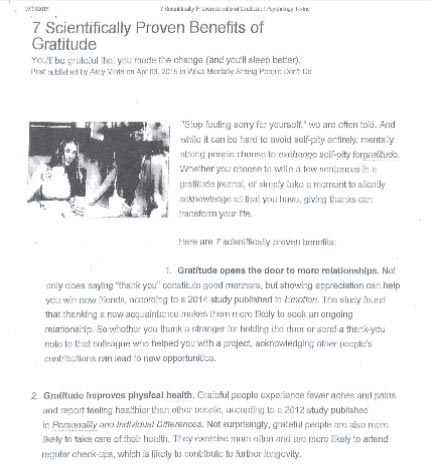 Not being “heard” by a partner is frustrating. No one wants to feel insignificant, invisible, overlooked or taken for granted. The common response when one feels they are not being listened to, is either to fight harder to get their partner’s attention, or retreat or withdraw often leading to depression.
Often a client says they feel they can’t express themselves in the relationship because when they try to talk, their partner becomes defensive meaning they only see and defend their side and their experience, often claiming they are “right”, without even hearing the initial partners complaint.
Therefore, I am sharing with you a fail-proof system of communicating, that eliminates both getting defensive, and eliminates triggering someone else from getting defensive. It is fail-proof when done correctly and I see tremendous changes in couples when we do this in therapy.
Here is information for you to understand and use the process. I would love to hear how it works for you. May you have significant and powerful results. Enjoy!
Not being “heard” by a partner is frustrating. No one wants to feel insignificant, invisible, overlooked or taken for granted. The common response when one feels they are not being listened to, is either to fight harder to get their partner’s attention, or retreat or withdraw often leading to depression.
Often a client says they feel they can’t express themselves in the relationship because when they try to talk, their partner becomes defensive meaning they only see and defend their side and their experience, often claiming they are “right”, without even hearing the initial partners complaint.
Therefore, I am sharing with you a fail-proof system of communicating, that eliminates both getting defensive, and eliminates triggering someone else from getting defensive. It is fail-proof when done correctly and I see tremendous changes in couples when we do this in therapy.
Here is information for you to understand and use the process. I would love to hear how it works for you. May you have significant and powerful results. Enjoy!
Effective communication is essential to a good relationship. Good communication skills may not solve problems or resolve issues, but no problems can be solved, or issues resolved without them. We may communicate well or poorly, but we cannot NOT communicate. One of the most effective forms of communication between persons in a committed love relationship is the INTENTIONAL DIALOGUE. It consists of three processes called mirroring, validation and empathy. Mirroring is the process of accurately reflecting back, the content of a message from one partner. The most common form of mirroring is paraphrasing. A “paraphrase” is a statement in your own words of what the message your partner sent means to you. It indicates that you are willing to transcend your own thoughts and feelings for the moment and attempt to understand your partner from their point of view. Any response made prior to mirroring is often an “interpretation” and may contain a misunderstanding. Mirroring allows your partner to send their message again and permits you to paraphrase until you do understand. Validation is a communication to the sending partner that the information being received and mirrored makes sense. It indicates that you can see the information from your partner’s point of view and can accept that it has validity- It is true for the partner. Validation is a temporary suspension or transcendence of your point of view that allows your partner’s experience to have its own reality. Typical validating phrases are: “I can see that…l”, “It makes sense to me that you would thing that”, “I can understand that …”, Such phrases convey to your partner that their subjective experience is not crazy, that it has it’s own logic, and that it is a valid way of looking at things. To validate your partner’s message does not mean that you agree with his/ her point of view or that it reflects your subjective experience. It merely recognizes the fact that in every situation, no “objective” view is possible. In many communication between two persons, there are always two points of view, and every report of any experience is an “interpretation” which is the “truth” for each person. The process of mirroring and validation affirms the other person and increases trust and closeness. Empathy is the process of reflecting or imagining the feeling the sending partner is experiencing about the event or the situation being reported. This deep level of communication attempts to recognize, reach into and on some level, experience the emotions of the sending partner. Empathy allows both partners to transcend, perhaps for a moment, their separateness and to experience a genuine “meeting.” Such an experience has remarkable healing power. Typical phrases for empathic communication include: “and I can imagine that you must feel…”, and when you experience that, I hear….and that makes sense to me.” A complete dialogue transaction may then sound as follows: “So, I understand you to be saying that if I don’t look at you when you are talking to me, you think that I am interested in what you are saying. I can understand that, it makes sense to me, and I can imagine that you would feel rejected and angry. That must be a terrible feeling.” The reciprocal exchange of this process is the INTENTIONAL DIALOGUE.

 If you received a raise tomorrow, what would you do with the extra money? Most people would celebrate—maybe with a nice dinner out or a great bottle of wine, which you deserve. However, earning more should not always change your current or long-term spending habits. The problem is that our minds have the tendency to think we can (and should) spend it. This can quickly create a loss of context, consistency, and control.
These behavioral tendencies are often seen in clinical disorders, and can affect your financial health. They’re also far more common than many realize.
Outstream Video
Financial wellness is not about having so many dollars in your bank account, but about being someone who behaves in a financially healthy way by spending, saving, and living better. But what about those unhealthy financial behaviors that sneak up on us? How do we face them head on, instead of sweeping them under the rug?
You may be shocked to learn that basic elements of common behaviors often seen in personality disorders can trickle into the lives of even the healthiest of individuals and affect their day-to-day financial behavior. Let’s explore three of the most common behaviors.
A Loss of Perspective
The first behavioral challenge we all face is a loss of perspective.
Remember your first paycheck? While we all savored that initial euphoria of the world being our oyster, that feeling dissipated quickly once you factored in unavoidable expenses such as rent, car payments or student loans. By not falling into that same mental trap today and assuming you have more money than you actually have, you’ll avoid the sticker shock you get when you open up your credit card statement each month.
You don’t need to experience euphoria to feel wealthier than you actually are. But you’re damaging your financial health by not looking at your numbers or balancing how much you’re spending with how much you’re earning.
“When people are manic, they have an inflated self-esteem and view of themselves—their sex appeal, their resources—and they have the inability to process the consequences of their actions, which leads to staggering indiscretions,” says Dr. Igor Galynker, a psychiatrist and the director of the Family Center for Bipolar at Beth Israel Medical Center in New York City.
How can you avoid this? One simple approach is to come up with your “Daily Spend” so you never lose focus. What is your Daily Spend? It’s your take home pay, minus all of your required living expenses divided by 30. When you go out shopping, you’ll have a whole new perspective when you realize that the nice shirt you’re looking at is seven days worth of your Daily Spend.
An Addictive Personality
We’ve all heard it. A lot of us have said it. “I have an addictive personality.” But in most cases, we’re referring to an innocent attachment to something we can’t live without: a daily habit. Our trusted Starbucks latte fix. An after-work glass of wine. Eating out for lunch every day!
While neither of these simple pleasures would classify us as an addict, have you stopped to think about how these daily purchases are affecting your financial health? How much are they costing you in the grand scheme of things? And could you live without them? In many cases of alcohol, drug, or gambling addiction, these behaviors started out just like anyone else—innocent and sparse—but spiralled as the daily fix lost its luster.
“No one knows what causes addictive behaviors, like shopping, alcoholism, drug abuse, and gambling,” says Ruth Engs, a professor from the applied health science department at Indiana University. “Some of the new evidence suggests that some people, maybe 10%-15%, may have a genetic predisposition to an addictive behavior, coupled with an environment in which the particular behavior is triggered, but no one really knows why.”
While you aren’t likely to go broke from frequent trips to Starbucks, if you can’t afford the habit, it could still damage your financial health. Putting yourself in debt can damage your mental health.
A Loss of Control
Are you a “shopaholic?” In its worst form, such behaviors can destroy relationships, and at best, hinder your ability to be financially healthy. To know if you have it, just ask yourself the following:
If you received a raise tomorrow, what would you do with the extra money? Most people would celebrate—maybe with a nice dinner out or a great bottle of wine, which you deserve. However, earning more should not always change your current or long-term spending habits. The problem is that our minds have the tendency to think we can (and should) spend it. This can quickly create a loss of context, consistency, and control.
These behavioral tendencies are often seen in clinical disorders, and can affect your financial health. They’re also far more common than many realize.
Outstream Video
Financial wellness is not about having so many dollars in your bank account, but about being someone who behaves in a financially healthy way by spending, saving, and living better. But what about those unhealthy financial behaviors that sneak up on us? How do we face them head on, instead of sweeping them under the rug?
You may be shocked to learn that basic elements of common behaviors often seen in personality disorders can trickle into the lives of even the healthiest of individuals and affect their day-to-day financial behavior. Let’s explore three of the most common behaviors.
A Loss of Perspective
The first behavioral challenge we all face is a loss of perspective.
Remember your first paycheck? While we all savored that initial euphoria of the world being our oyster, that feeling dissipated quickly once you factored in unavoidable expenses such as rent, car payments or student loans. By not falling into that same mental trap today and assuming you have more money than you actually have, you’ll avoid the sticker shock you get when you open up your credit card statement each month.
You don’t need to experience euphoria to feel wealthier than you actually are. But you’re damaging your financial health by not looking at your numbers or balancing how much you’re spending with how much you’re earning.
“When people are manic, they have an inflated self-esteem and view of themselves—their sex appeal, their resources—and they have the inability to process the consequences of their actions, which leads to staggering indiscretions,” says Dr. Igor Galynker, a psychiatrist and the director of the Family Center for Bipolar at Beth Israel Medical Center in New York City.
How can you avoid this? One simple approach is to come up with your “Daily Spend” so you never lose focus. What is your Daily Spend? It’s your take home pay, minus all of your required living expenses divided by 30. When you go out shopping, you’ll have a whole new perspective when you realize that the nice shirt you’re looking at is seven days worth of your Daily Spend.
An Addictive Personality
We’ve all heard it. A lot of us have said it. “I have an addictive personality.” But in most cases, we’re referring to an innocent attachment to something we can’t live without: a daily habit. Our trusted Starbucks latte fix. An after-work glass of wine. Eating out for lunch every day!
While neither of these simple pleasures would classify us as an addict, have you stopped to think about how these daily purchases are affecting your financial health? How much are they costing you in the grand scheme of things? And could you live without them? In many cases of alcohol, drug, or gambling addiction, these behaviors started out just like anyone else—innocent and sparse—but spiralled as the daily fix lost its luster.
“No one knows what causes addictive behaviors, like shopping, alcoholism, drug abuse, and gambling,” says Ruth Engs, a professor from the applied health science department at Indiana University. “Some of the new evidence suggests that some people, maybe 10%-15%, may have a genetic predisposition to an addictive behavior, coupled with an environment in which the particular behavior is triggered, but no one really knows why.”
While you aren’t likely to go broke from frequent trips to Starbucks, if you can’t afford the habit, it could still damage your financial health. Putting yourself in debt can damage your mental health.
A Loss of Control
Are you a “shopaholic?” In its worst form, such behaviors can destroy relationships, and at best, hinder your ability to be financially healthy. To know if you have it, just ask yourself the following:
 When a couples come to my office for therapy, I usually ask, “What is it that keeps you together?” Answers range from convenience, sex, money, companionship to the most frequent response, “We love each other”. The problem with this response is that love means different things to different people. Sometimes the expectations that one associates with love can add to the relationships conflicts. i.e. “If you loved me you would do this ..…or you would feel this ..…” The second question I ask is, “Do you trust each other?” Interestingly, many people emphatically say “No, we love each other but we don’t trust each other”. Trust and good communication are the two main ingredients necessary for intimacy. Therefore, love without trust is not enough. Without trust we don’t feel safe. Many people have problems with trust. If handling things alone and taking care of yourself was what you had to do as a child, it may feel unfamiliar and scary to be in a close relationship. On the other hand, come people cling to those they love, being overly jealous and unable to tolerate a healthy level of independence.
Intimacy isn’t something you can experience alone. By it’s very nature, it assumes a relationship and a relationship means risk. The other half of any relationship is a person you can’t control. But in a loving relationship, you and your partner can create intimacy with excitement, passion, good communication and trust. Rewards are great when you are willing to work together.
The following is an INTIMACY ASSESSMENT meant to be used as a guide to assess intimacy in your relationship. Think about a partner or a close friend and ask yourself the following:
When a couples come to my office for therapy, I usually ask, “What is it that keeps you together?” Answers range from convenience, sex, money, companionship to the most frequent response, “We love each other”. The problem with this response is that love means different things to different people. Sometimes the expectations that one associates with love can add to the relationships conflicts. i.e. “If you loved me you would do this ..…or you would feel this ..…” The second question I ask is, “Do you trust each other?” Interestingly, many people emphatically say “No, we love each other but we don’t trust each other”. Trust and good communication are the two main ingredients necessary for intimacy. Therefore, love without trust is not enough. Without trust we don’t feel safe. Many people have problems with trust. If handling things alone and taking care of yourself was what you had to do as a child, it may feel unfamiliar and scary to be in a close relationship. On the other hand, come people cling to those they love, being overly jealous and unable to tolerate a healthy level of independence.
Intimacy isn’t something you can experience alone. By it’s very nature, it assumes a relationship and a relationship means risk. The other half of any relationship is a person you can’t control. But in a loving relationship, you and your partner can create intimacy with excitement, passion, good communication and trust. Rewards are great when you are willing to work together.
The following is an INTIMACY ASSESSMENT meant to be used as a guide to assess intimacy in your relationship. Think about a partner or a close friend and ask yourself the following:
 This counselor sees these three things as basically universal truths, and most people who have been married five years or more are unlikely to disagree with any of them. We don’t really know who we are marrying—there is always something more to find out. No one person can meet all our needs. And every marriage is difficult.
These “3 Truths” are healthy reminders for every married couple. So often we want to particularize the challenge of our marriage, making it our spouse’s fault instead of admitting that no one fully and completely knows the person they are marrying; no marriage supplies all our emotional needs; and no marriage is always “easy.”
The trick is to keep a universal truth from becoming a specific attack. For example: “You’re not who I thought you were” can lead to, “Therefore you must have lied to me or hid from me or misled me intentionally.” You’ve taken a universal truth about marriage and used it as an individual assault.
Let me add a caveat here, however, for one particular situation: Some people are master manipulators and they really did commit fraud prior to the marriage, about who they were, what they value, and how they live. And some people can actively and intentionally cover up major issues psychological, drug dependence, etc.) from their future spouse that also amounts to fraud.
For most people, though, it’s not about fraud as much it is about discovery, having our eyes opened to distasteful things, short of abuse, that are unpleasant and maybe even shocking to discover. Even if your spouse managed to be one hundred percent honest while dating, you’ll still find out a few unfortunate truths about him or her as the marriage progresses.
The second universal truth, “You’re not meeting my needs!” implies that someone else could meet all your needs. It can turn into a poisonous disappointment and contempt, all because you accepted the premise of a lie—that your spouse is supposed to meet all your needs. Imagine a coach berating Lebron James because during one game he missed half his shots or only pulled down three rebounds. Try to find any player who doesn’t usually miss half his shots!
Finally, “Marriage is difficult” can turn into “you’re difficult so something must be wrong with you.” No one person can meet all our needs. According to the IMAGO model, if you want more love, be more loving. If you want more kindness and consideration, be more considerate and kind. If you want more sex, be more sexual. Be more of what you want. Don’t expect more than what you give. Also, ask yourself, what have I done to keep the spark in my marriage/ relationship lately?
So let’s step back and look at these three thoughts.
This counselor sees these three things as basically universal truths, and most people who have been married five years or more are unlikely to disagree with any of them. We don’t really know who we are marrying—there is always something more to find out. No one person can meet all our needs. And every marriage is difficult.
These “3 Truths” are healthy reminders for every married couple. So often we want to particularize the challenge of our marriage, making it our spouse’s fault instead of admitting that no one fully and completely knows the person they are marrying; no marriage supplies all our emotional needs; and no marriage is always “easy.”
The trick is to keep a universal truth from becoming a specific attack. For example: “You’re not who I thought you were” can lead to, “Therefore you must have lied to me or hid from me or misled me intentionally.” You’ve taken a universal truth about marriage and used it as an individual assault.
Let me add a caveat here, however, for one particular situation: Some people are master manipulators and they really did commit fraud prior to the marriage, about who they were, what they value, and how they live. And some people can actively and intentionally cover up major issues psychological, drug dependence, etc.) from their future spouse that also amounts to fraud.
For most people, though, it’s not about fraud as much it is about discovery, having our eyes opened to distasteful things, short of abuse, that are unpleasant and maybe even shocking to discover. Even if your spouse managed to be one hundred percent honest while dating, you’ll still find out a few unfortunate truths about him or her as the marriage progresses.
The second universal truth, “You’re not meeting my needs!” implies that someone else could meet all your needs. It can turn into a poisonous disappointment and contempt, all because you accepted the premise of a lie—that your spouse is supposed to meet all your needs. Imagine a coach berating Lebron James because during one game he missed half his shots or only pulled down three rebounds. Try to find any player who doesn’t usually miss half his shots!
Finally, “Marriage is difficult” can turn into “you’re difficult so something must be wrong with you.” No one person can meet all our needs. According to the IMAGO model, if you want more love, be more loving. If you want more kindness and consideration, be more considerate and kind. If you want more sex, be more sexual. Be more of what you want. Don’t expect more than what you give. Also, ask yourself, what have I done to keep the spark in my marriage/ relationship lately?
So let’s step back and look at these three thoughts.
 was forced to make his living as a writer (he became the most popular writer of his day, he thought having a wife would be a very good thing, and he soon entered into a very happy and fulfilling marriage to a young woman named Margaret.
In making his choice, Richard was already a wise man who, as a pastor, had seen the folly so many others had fallen into to. Thus, he was determined to “avoid the foolish passion which the world calls love.”
He didn’t minimize love, but sought a higher love: “I know you must have love for those [you marry],” he wrote, but he was insistent that it be a “rational” love that discerns “worth and fitness” in the loved, not “blind…lust or fancy.”[i]
Richard had seen how “blind lust and fancy” (sex appeal and romantic infatuation) could make seemingly wise people curiously blind to a person’s poor worth and low character so he determined early on that he would not be guided by those things.
Instead, he was determined to find a “worthy” spouse, and a “fit” spouse.
If you find yourself crazy with infatuation, and your highest desperate desire is to hear that they feel the same way about you, force yourself to ask two rational questions:
was forced to make his living as a writer (he became the most popular writer of his day, he thought having a wife would be a very good thing, and he soon entered into a very happy and fulfilling marriage to a young woman named Margaret.
In making his choice, Richard was already a wise man who, as a pastor, had seen the folly so many others had fallen into to. Thus, he was determined to “avoid the foolish passion which the world calls love.”
He didn’t minimize love, but sought a higher love: “I know you must have love for those [you marry],” he wrote, but he was insistent that it be a “rational” love that discerns “worth and fitness” in the loved, not “blind…lust or fancy.”[i]
Richard had seen how “blind lust and fancy” (sex appeal and romantic infatuation) could make seemingly wise people curiously blind to a person’s poor worth and low character so he determined early on that he would not be guided by those things.
Instead, he was determined to find a “worthy” spouse, and a “fit” spouse.
If you find yourself crazy with infatuation, and your highest desperate desire is to hear that they feel the same way about you, force yourself to ask two rational questions:

 Denise O’Doherty, psychotherapist and Licensed Marriage and Family Therapist, will give tips and insights on how we can better define, love and protect ourselves through “Personal Boundaries and Effective Confrontation”. Good boundaries affect everything we do. They give us freedom to be ourselves and they teach others how to treat us. Topics addressed will be what gets in the way of having good boundaries, the difference between rigid and flexible boundaries, and how to deal with passive and aggressive people by understanding their cost and payoff. Boundary setting tips, self-esteem, codependency, shame and guilt will also be addressed. She will conclude with an outline for us a step by step way to confront someone effectively.
Denise will begin with a short review of “Stages of Grief” by special request, for those dealing with feelings of loss post-election.
Visit her website at:
Denise O’Doherty, psychotherapist and Licensed Marriage and Family Therapist, will give tips and insights on how we can better define, love and protect ourselves through “Personal Boundaries and Effective Confrontation”. Good boundaries affect everything we do. They give us freedom to be ourselves and they teach others how to treat us. Topics addressed will be what gets in the way of having good boundaries, the difference between rigid and flexible boundaries, and how to deal with passive and aggressive people by understanding their cost and payoff. Boundary setting tips, self-esteem, codependency, shame and guilt will also be addressed. She will conclude with an outline for us a step by step way to confront someone effectively.
Denise will begin with a short review of “Stages of Grief” by special request, for those dealing with feelings of loss post-election.
Visit her website at:
 We also use food for reasons other than nourishment.
It’s one thing to use substances within a healthy framework, but another to cross the line into addiction – and it can be very difficult to see the difference.
When we are in physical or emotional pain, we want relief immediately. When the nervous system is out of balance, we try to regulate ourselves in the best ways we know how. We turn to many substances and activities: alcohol, drugs, sex, shopping, the Internet, porn, gambling and gaming. What happens after a while is that we build up tolerance and after time you much consume more to get the same effect.
The Problem with addiction.
When you are in an altered state, you become very self-centered. Frequently, the addictive habit becomes your primary relationship. Now your partner becomes a competitor to the addiction for time and attention.
Transforming Addiction
Consider these questions:
We also use food for reasons other than nourishment.
It’s one thing to use substances within a healthy framework, but another to cross the line into addiction – and it can be very difficult to see the difference.
When we are in physical or emotional pain, we want relief immediately. When the nervous system is out of balance, we try to regulate ourselves in the best ways we know how. We turn to many substances and activities: alcohol, drugs, sex, shopping, the Internet, porn, gambling and gaming. What happens after a while is that we build up tolerance and after time you much consume more to get the same effect.
The Problem with addiction.
When you are in an altered state, you become very self-centered. Frequently, the addictive habit becomes your primary relationship. Now your partner becomes a competitor to the addiction for time and attention.
Transforming Addiction
Consider these questions:
 The message is that holidays are a time of giving and receiving surrounded by family and friends giving recognition for our lives. Its easy to envision festive images of family, friends, food, party’s and religious observation.
In other words the holidays are supposed to be a time of celebration and fun. Yet, ironically holidays can also bring about stress, anxiety, depression and disappointment. These occur for many reasons. Socializing for the holidays often is an excuse for people to over eat, and over drink, feeling miserable and remorseful later. Guilt and shame can also accompany “giving in”. The pressure of gift giving and going out more can be stressful if one over- steps financial boundaries and spends too much, only to pay for it later, both financially and emotionally. Feeling frantic, trying to live up to what you think others expect from you and what you unrealistically expect from yourself and others can lead to anxiety and disappointment. Compromising your values or beliefs, feeling stuck and obligated, with limited choices and alternatives can lead to depression.
Symptoms that alert us to depression are:
The message is that holidays are a time of giving and receiving surrounded by family and friends giving recognition for our lives. Its easy to envision festive images of family, friends, food, party’s and religious observation.
In other words the holidays are supposed to be a time of celebration and fun. Yet, ironically holidays can also bring about stress, anxiety, depression and disappointment. These occur for many reasons. Socializing for the holidays often is an excuse for people to over eat, and over drink, feeling miserable and remorseful later. Guilt and shame can also accompany “giving in”. The pressure of gift giving and going out more can be stressful if one over- steps financial boundaries and spends too much, only to pay for it later, both financially and emotionally. Feeling frantic, trying to live up to what you think others expect from you and what you unrealistically expect from yourself and others can lead to anxiety and disappointment. Compromising your values or beliefs, feeling stuck and obligated, with limited choices and alternatives can lead to depression.
Symptoms that alert us to depression are: